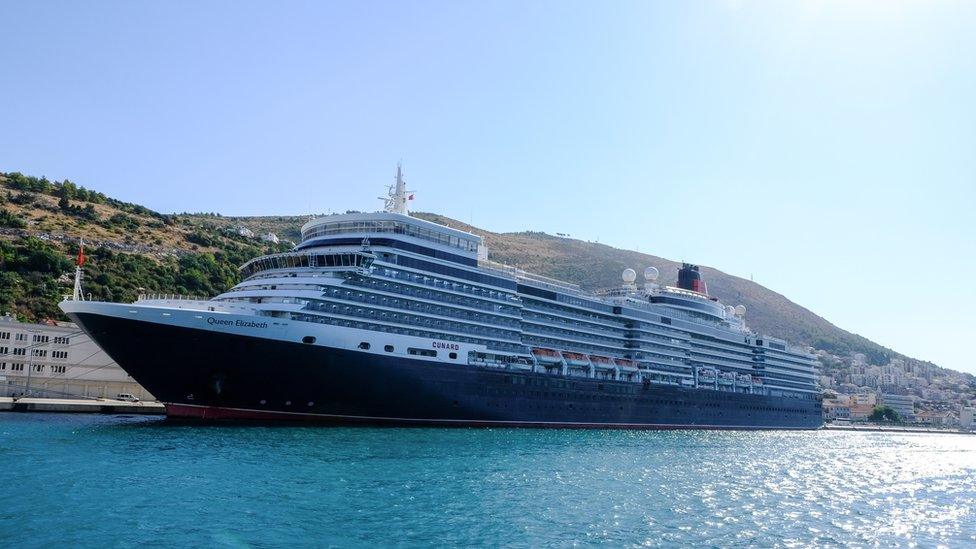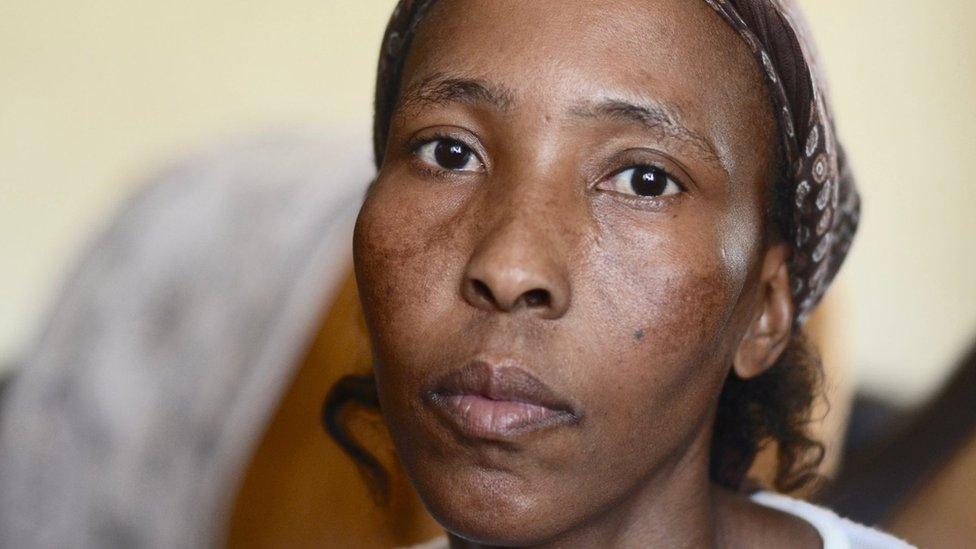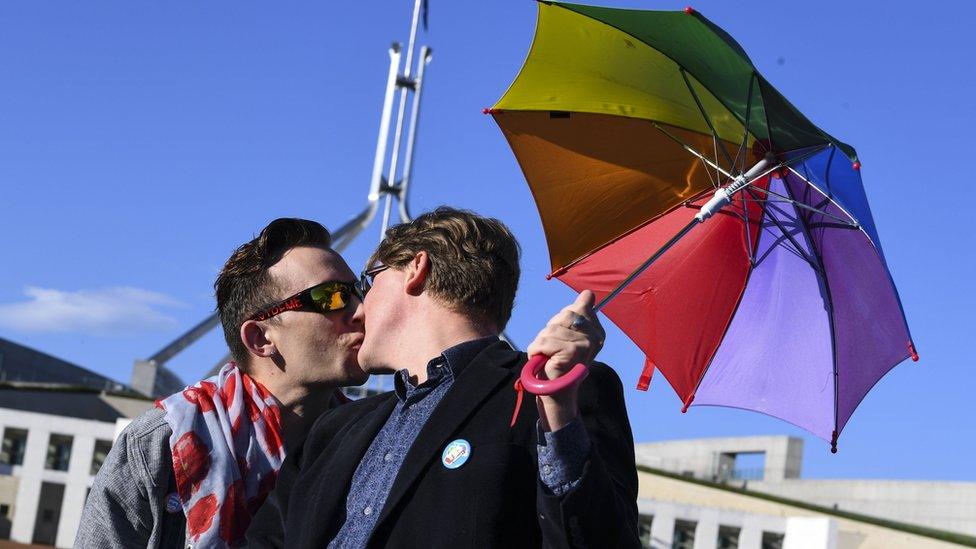Bermuda same-sex marriage: Government will not block bill
- Published

Same-sex marriages on Bermuda-registered cruise lines like Cunard and P&O Cruises will be outlawed
The UK government has said it would not be "appropriate" to block Bermuda's decision to repeal same-sex marriage.
On Wednesday the British overseas territory became the first country in the world to pass, and then revoke, the law, replacing gay marriage with domestic partnerships.
The decision also means cruise ships registered in Bermuda are likely to be banned from hosting same-sex weddings.
Theresa May said the UK's dealings with Bermuda should be based on "respect".
But critics say the law reversal will make the UK an international "laughing stock".
The Atlantic island, which is home to 60,000 people, legalised marriage between homosexual couples in May 2017, following a Supreme Court ruling.
But the new Domestic Partnership Act, external, approved by Bermuda Governor John Rankin on Wednesday, rolls back the legalisation.
Instead of marriage, the act allows gay or straight couples to form a partnership, which the Bermuda government says carries equivalent rights.
According to Bermuda's minister of home affairs, Walton Brown, the majority of Bermudians do not agree with gay couples marrying.
He said: "The act is intended to strike a fair balance between two currently irreconcilable groups in Bermuda, by restating that marriage must be between a male and a female while at the same time recognising and protecting the rights of same-sex couples."
'Laughing stock'
Because of Bermuda's status as an overseas dependent territory, the UK government had the power to block the law change.
But Foreign Office minister Harriett Baldwin told MPs: "After full and careful consideration in regards to Bermuda's constitutional and international obligations, the Secretary decided that in these circumstances it would not be appropriate to use this power to block legislation, which can only can be used where there is a legal or constitutional basis for doing so, and even then only in exceptional circumstances."
Prime Minister Theresa May said she was "seriously disappointed" about the decision to abolish same-sex marriage.
But she added: "That bill has been democratically passed by the Parliament of Bermuda, and our relationship with the overseas territories is based on partnership and respect for their right to democratic self-government."
MPs on all sides criticised the decision and called it a backward step.
Labour MP Chris Bryant said the law reversal will make Britain a "laughing stock in the international human rights field".
Allow X content?
This article contains content provided by X. We ask for your permission before anything is loaded, as they may be using cookies and other technologies. You may want to read X’s cookie policy, external and privacy policy, external before accepting. To view this content choose ‘accept and continue’.
Raising the issue in the Commons as an urgent question, Mr Bryant added: "Same-sex Bermudian couples who have been married under the ruling of the Bermudian Supreme Court have now been rendered an anomaly.
"Gay and lesbian Bermudians have been told that they aren't quite equal to everyone else."
The BBC's diplomatic correspondent James Landale said: "The problem, as many MPs pointed out, is that Britain may now find it harder to promote LGBT rights around the world when it has failed to do so in one of its own overseas territories."
The cruise companies Cunard and P&O Cruises, both of which register their ships in Bermuda, said they were "very unhappy" about the change in legislation, which will outlaw same-sex marriage ceremonies on their liners.
"We do not underestimate the disappointment this will cause those guests who have planned their weddings," the companies said in an identically-worded statement.
Instead, the firms will offering same-sex couples on-board alternative "commitment" ceremonies.
Same-sex marriage is legal in 26 countries around the world and will soon become authorised in two more nations - Austria and Taiwan, which is the first ruling of its kind in Asia.
The Netherlands was the first country to legalise same-sex marriage in 2001.
- Published7 April 2016

- Published7 February 2018

- Published7 December 2017
